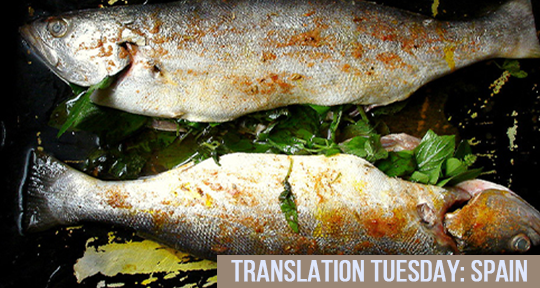This week’s Translation Tuesday features the poetry of Gemma Gorga. The poems revolve around themes of domestic labor and consumption; but they are not what they appear on the surface. Fastidious consideration of fish-flesh or mercury or cautionary affects inherited by one’s grandmother hint at a nuanced understanding of the traces of events left on the body and the mind. “Still the smell does not want to leave them, / as if tiny bags of memory remained,” Gorga writes, indicating the complex and grotesque traces that always remain after affects. Visceral, but not overly descriptive, the style weaves potent materials with potent concepts in metaphoric embraces. These poems show that whole lives, whole beings, can be explained and articulated by the smallest things: an anchovy’s spine, a pellet of mercury, a poem.
Poetics of the Fragment
When you return from the market
you must clean the anchovies,
which means ripping off the head and tail,
removing the thin strips still sticky
with life, the central spine
that detaches with a slight zip,
afterwards washing them,
purifying them under tap water
(even death requires baptism),
making sure no tiny eye remains
trapped in the moist blindness of your fingers,
finally soaking them in vinegar,
waiting until the flesh whitens
cured in acid, cured all the way through.
They have lain for hours beneath the planetary
light of oil and pepper.
Still the smell does not want to leave them,
as if tiny bags of memory remained
hidden in the folds forming matter and air.
Making sure no one sees me,
I smell the backs of my hands
(for the sea trace from fish bellies)
and I know they are yours. READ MORE…

